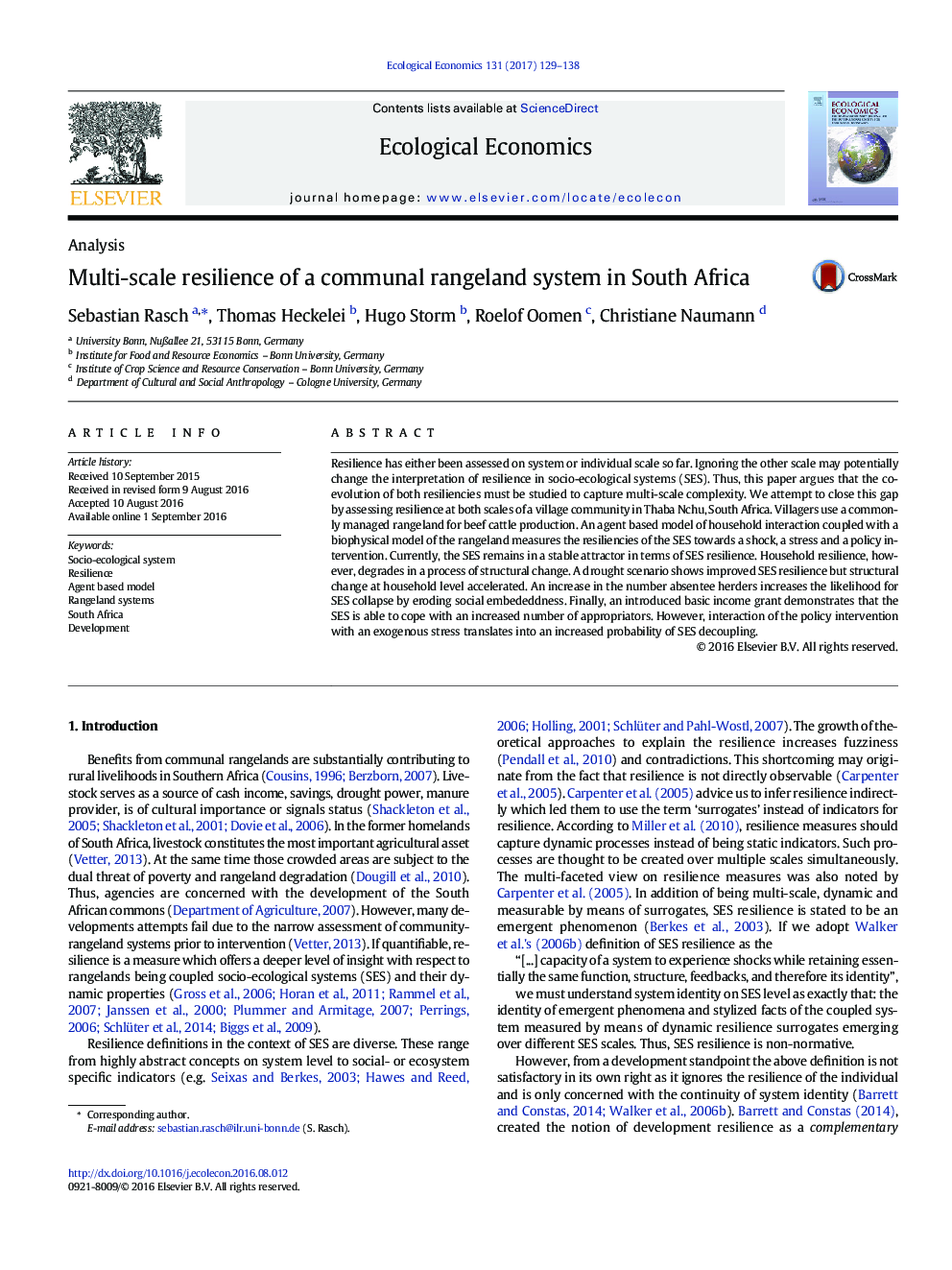| Article ID | Journal | Published Year | Pages | File Type |
|---|---|---|---|---|
| 5048864 | Ecological Economics | 2017 | 10 Pages |
Resilience has either been assessed on system or individual scale so far. Ignoring the other scale may potentially change the interpretation of resilience in socio-ecological systems (SES). Thus, this paper argues that the co-evolution of both resiliencies must be studied to capture multi-scale complexity. We attempt to close this gap by assessing resilience at both scales of a village community in Thaba Nchu, South Africa. Villagers use a commonly managed rangeland for beef cattle production. An agent based model of household interaction coupled with a biophysical model of the rangeland measures the resiliencies of the SES towards a shock, a stress and a policy intervention. Currently, the SES remains in a stable attractor in terms of SES resilience. Household resilience, however, degrades in a process of structural change. A drought scenario shows improved SES resilience but structural change at household level accelerated. An increase in the number absentee herders increases the likelihood for SES collapse by eroding social embededdness. Finally, an introduced basic income grant demonstrates that the SES is able to cope with an increased number of appropriators. However, interaction of the policy intervention with an exogenous stress translates into an increased probability of SES decoupling.
